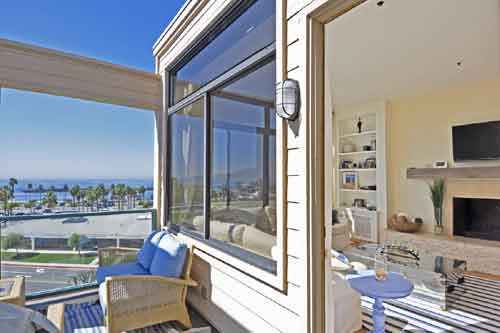Disclosing Defects – How Can I Protect Myself Selling My Home?
Most after-closing legal claims and lawsuits by buyers against sellers involve misrepresentations or incorrect disclosures.
There are a few guidelines for protecting yourself when you sell your home.
back to buyer and seller tips and helpful information
First, pick the right agent. Your listing agent will represent you in interactions with other agents, prospective buyers, lenders, inspectors, and various professionals associated with the real estate business. Be sure to select a trustworthy agent with whom you are compatible, one who will represent you honestly and fairly in your dealings with buyers and others during the sale.
Next, be fastidious about preparing your property for sale. This will not only facilitate the sale and bring you a higher price, it could prevent after closing disputes with the buyers. It might be well worth your while to fix little things like dripping sinks, broken handles, cracked outlet covers, and more.
Make a list of all the elements of your home that need repair or replacement. Your agent can help you with this. If you’re uncertain about the condition of a major system, like the roof or furnace, you MIGHT want to hire a professional to inspect and issue a report. Keep in mind, however, that you are only obligated to disclose things that you know. You are under no obligation to investigate or look for problems.
Determine how much it will cost to repair or replace defective items. If you can’t afford to repair everything on the list, ask your agent to help you prioritize. Disclose any defects that you’re aware of that you don’t fix before selling.
HOME SELLER TIP:
Sellers often fear that if they disclose defects to buyers it will impede the sale of the property. This is possible but it rarely happens. In fact, buyers appreciate knowing about property defects before they buy. Problems can develop when buyers discover defects after closing that they know the sellers were aware of, but failed to disclose. Most of these items will come up in an inspection anway and you never want the buyer thinking you’re hiding something.
It’s natural to feel proud of your home. But, avoid over-selling your home to prospective buyers. Be particularly careful about rooms that were added without required building permits.
Many after-closing claims involve misrepresentation of square footage. When a property is passed from one owner to the next, the square
footage is often rounded up to a higher number. For instance, a 2900 square foot home might be represented as approximately 3000 square feet. The next owner might say the house has about 3000 square feet, perhaps a little more. Never guess about square footage. Square footage claims can involve substantial monetary damages.
IN CLOSING:
Check with your agent or real estate attorney if you have any questions about your disclosure obligations. California requires sellers to disclose material facts that might effect the buyers’ decision to buy or the price they might pay.
As a rule we advise our clients to over disclose. There’s no benefit to hiding things and all “known material” facts and defects should be made clear to the agent and the seller as early as possible so that it does not come as a surprise to anyone and derail the process. Again keep in mind that the seller is under no obligation to speculate or disclose things they are not aware of. You don’t need to go looking for problems but if you know about something….you need to disclose.